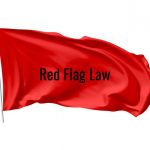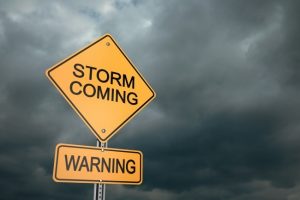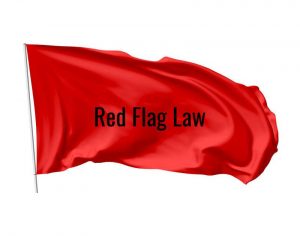Website disclaimer
- Introduction
1.1 This disclaimer shall govern your use of our website.
1.2 By using our website, you accept this disclaimer in full; accordingly, if you disagree with this disclaimer or any part of this disclaimer, you must not use our website.
1.3 Our website uses cookies; by using our website or agreeing to this disclaimer, you consent to our use of cookies in accordance with the terms of our [privacy and cookies policy].
- Credit
2.1 This document was created using a template from SEQ Legal (http://www.seqlegal.com).
- Copyright notice
3.1 Copyright (c) [year(s) of first publication] [full name].
3.2 Subject to the express provisions of this disclaimer:
(a) we, together with our licensors, own and control all the copyright and other intellectual property rights in our website and the material on our website; and
(b) all the copyright and other intellectual property rights in our website and the material on our website are reserved.
- License to use website
4.1 You may:
(a) view pages from our website in a web browser;
(b) download pages from our website for caching in a web browser; and
(c) print pages from our website, subject to the other provisions of this disclaimer.
4.2 Except as expressly permitted by Section 4.1 or the other provisions of this disclaimer, you must not download any material from our website or save any such material to your computer.
4.3 You may only use our website for [your own personal and business purposes], and you must not use our website for any other purposes.
4.4 Unless you own or control the relevant rights in the material, you must not:
(a) republish material from our website (including republication on another website);
(b) sell, rent or sub-license material from our website;
(c) show any material from our website in public;
(d) exploit material from our website for a commercial purpose; or
(e) redistribute material from our website.
4.5 We reserve the right to restrict access to areas of our website, or indeed our whole website, at our discretion; you must not circumvent or bypass, or attempt to circumvent or bypass, any access restriction measures on our website.
- Acceptable use
5.1 You must not:
(a) use our website in any way or take any action that causes, or may cause, damage to the website or impairment of the performance, availability or accessibility of the website;
(b) use our website in any way that is unlawful, illegal, fraudulent or harmful, or in connection with any unlawful, illegal, fraudulent or harmful purpose or activity;
(c) use our website to copy, store, host, transmit, send, use, publish or distribute any material which consists of (or is linked to) any spyware, computer virus, Trojan horse, worm, keystroke logger, rootkit or other malicious computer software;
(d) [conduct any systematic or automated data collection activities (including without limitation scraping, data mining, data extraction and data harvesting) on or in relation to our website without our express written consent];
(e) [access or otherwise interact with our website using any robot, spider or other automated means[, except for the purpose of [search engine indexing]]];
(f) [violate the directives set out in the robots.txt file for our website]; or
(g) [use data collected from our website for any direct marketing activity (including without limitation email marketing, SMS marketing, telemarketing and direct mailing)].
[additional list items]
5.2 You must not use data collected from our website to contact individuals, companies or other persons or entities.
5.3 You must ensure that all the information you supply to us through our website, or in relation to our website, is [true, accurate, current, complete and non-misleading].
- Limited warranties
6.1 We do not warrant or represent:
(a) the completeness or accuracy of the information published on our website;
(b) that the material on the website is up to date; or
(c) that the website or any service on the website will remain available.
6.2 We reserve the right to discontinue or alter any or all of our website services, and to stop publishing our website, at any time in our sole discretion without notice or explanation; and save to the extent expressly provided otherwise in this disclaimer, you will not be entitled to any compensation or other payment upon the discontinuance or alteration of any website services, or if we stop publishing the website.
6.3 To the maximum extent permitted by applicable law and subject to Section 7.1, we exclude all representations and warranties relating to the subject matter of this disclaimer, our website and the use of our website.
- Limitations and exclusions of liability
7.1 Nothing in this disclaimer will:
(a) limit or exclude any liability for death or personal injury resulting from negligence;
(b) limit or exclude any liability for fraud or fraudulent misrepresentation;
(c) limit any liabilities in any way that is not permitted under applicable law; or
(d) exclude any liabilities that may not be excluded under applicable law.
7.2 The limitations and exclusions of liability set out in this Section 7 and elsewhere in this disclaimer:
(a) are subject to Section 7.1; and
(b) govern all liabilities arising under this disclaimer or relating to the subject matter of this disclaimer, including liabilities arising in contract, in tort (including negligence) and for breach of statutory duty, except to the extent expressly provided otherwise in this disclaimer.
7.3 To the extent that our website and the information and services on our website are provided free of charge, we will not be liable for any loss or damage of any nature.
7.4 We will not be liable to you in respect of any losses arising out of any event or events beyond our reasonable control.
7.5 We will not be liable to you in respect of any business losses, including (without limitation) loss of or damage to profits, income, revenue, use, production, anticipated savings, business, contracts, commercial opportunities or goodwill.
7.6 We will not be liable to you in respect of any loss or corruption of any data, database or software.
7.7 We will not be liable to you in respect of any special, indirect or consequential loss or damage.
7.8 You accept that we have an interest in limiting the personal liability of our officers and employees and, having regard to that interest, you acknowledge that we are a limited liability entity; you agree that you will not bring any claim personally against our officers or employees in respect of any losses you suffer in connection with the website or this disclaimer (this will not, of course, limit or exclude the liability of the limited liability entity itself for the acts and omissions of our officers and employees).
- Variation
8.1 We may revise this disclaimer from time to time.
8.2 The revised disclaimer shall apply to the use of our website from the time of publication of the revised disclaimer on the website.
- Severability
9.1 If a provision of this disclaimer is determined by any court or other competent authority to be unlawful and/or unenforceable, the other provisions will continue in effect.
9.2 If any unlawful and/or unenforceable provision of this disclaimer would be lawful or enforceable if part of it were deleted, that part will be deemed to be deleted, and the rest of the provision will continue in effect.
- Law and jurisdiction
10.1 This disclaimer shall be governed by and construed in accordance with [English law].
10.2 Any disputes relating to this disclaimer shall be subject to the [exclusive] OR [non-exclusive] jurisdiction of the courts of [England].
- Statutory and regulatory disclosures
11.1 We are registered in [trade register]; you can find the online version of the register at [URL], and our registration number is [number].
11.2 We are subject to [authorisation scheme], which is supervised by [supervisory authority].
11.3 We are registered as [title] with [professional body] in [the United Kingdom] and are subject to [rules], which can be found at [URL].
11.4 We subscribe to [code(s) of conduct], which can be consulted electronically at [URL(s)].
11.5 Our VAT number is [number].
- Our details
12.1 This website is owned and operated by [name].
12.2 We are registered in [England and Wales] under registration number [number], and our registered office is at [address].
12.3 Our principal place of business is at [address].
12.4 You can contact us:
(a) [by post, using the postal address [given above]];
(b) [using our website contact form];
(c) [by telephone, on [the contact number published on our website from time to time]]; or
(d) [by email, using [the email address published on our website from time to time]].
[additional list items]
Section 1: Introduction
Section 1.2
Optional element.
The completed document should be easily accessible on the website, with a link from every page.
Section 1.3
Optional element. Does the website use cookies (including session cookies and third party cookies)?
The inclusion of this statement in your website legal documents will not in itself satisfy the requirements of the Privacy and Electronic Communications (EC Directive) Regulations 2003 (as amended) concerning consent to the use of cookies. Guidance concerning methods of obtaining such consent is included on the Information Commissioner’s website (http://www.ico.gov.uk).
- What is the title of the document on the website that contains cookie information?
Section 2: Credit
Section: Free documents licensing warning
Optional element. Although you need to retain the credit, you should remove the inline copyright warning from this document before use.
Section 3: Copyright notice
Section 3.1
- What was the year of first publication of the relevant copyright material (or the range of years)?
- Who is the principal owner of copyright in the website?
Section 4: Licence to use website
The scope of the licence to use will vary with each site. Consider carefully exactly what your users should be allowed to do with your website and material on your website.
Section 4.3
Optional element.
- For what purposes may the website be used?
Section 5: Acceptable use
Section 5.1
- Should automated interactions with the website be prohibited?
- Will the website incorporate a robots.txt file?
- Should users be prohibited from using the website for direct marketing activity?
Section 5.2
Optional element. Should the use of data collected from the website to contact people and businesses be prohibited?
Section 5.3
Optional element.
- What standard of veracity etc should user-submitted content meet?
Section 6: Limited warranties
Section 6.1
Optional element.
Section 6.2
Optional element.
Section 7: Limitations and exclusions of liability
Limitations and exclusions of liability are regulated and controlled by law, and the courts may rule that particular limitations and exclusions of liability are unenforceable. The courts may be more likely to rule that provisions excluding liability, as opposed to those merely limiting liability, are unenforceable. If there is a risk that any particular limitation or exclusion of liability will be found to be unenforceable by the courts, that provision should be drafted as an independent term, and be numbered separately from the other provisions. It may improve the chances of a limitation or exclusion of liability being found to be enforceable if it was specifically drawn to the attention of the relevant person. In English law, exclusions and limitations of liability in legal notices are regulated by the Unfair Contract Terms Act 1977 (“UCTA”). Legal notices regulated by UCTA cannot exclude or restrict a party’s liability for death or personal injury resulting from negligence (Section 2(1), UCTA). Except insofar as the relevant term satisfies the requirements of reasonableness, such legal notices cannot exclude or restrict liability for negligence (Section 2(2), UCTA). These guidance notes provide a very incomplete and basic overview of a complex subject. Accordingly, you should take legal advice if you may wish to rely upon a limitation or exclusion of liability.
Section 7.1
Do not delete this provision (except upon legal advice). Without this provision, the specific limitations and exclusions of liability in the document are more likely to be unenforceable.
Section 7.3
Optional element. Do you want to attempt to exclude all liability for free services and information?
This sort of exclusion is quite common, but unlikely to be enforceable in court.
Section 7.5
Optional element.
Section 7.6
Optional element.
Section 7.7
Optional element.
Section 7.8
Optional element. If the website operator is a limited liability entity (e.g. a limited company), do you want to expressly exclude liability on the part of officers and employees?
Section 8: Variation
Changes to legal documents published on a website will not generally be retrospectively effective, and variations without notice to and/or consent from relevant users may be ineffective.
Section 10: Law and jurisdiction
The questions of which law governs a document and where disputes relating to the document may be litigated are two distinct questions.
Section 10.1
This document has been drafted to comply with English law, and the governing law provision should not be changed without obtaining expert advice from a lawyer qualified in the appropriate jurisdiction. In some circumstances the courts will apply provisions of their local law, such as local competition law or consumer protection law, irrespective of a choice of law clause.
- Which law should govern the document?
Section 10.2
In some circumstances your jurisdiction clause may be overridden by the courts.
- Should the jurisdiction granted be exclusive or non-exclusive? Choose “non-exclusive” jurisdiction if you may want to enforce the terms and conditions against users outside England and Wales. Otherwise, choose “exclusive jurisdiction”.
- The courts of which country or jurisdiction should adjudicate disputes under the document?
Section 11: Statutory and regulatory disclosures
Do the Electronic Commerce (EC Directive) Regulations 2002 apply to the website or is the website operator registered for VAT?
This section can be deleted where website operator is not registered for VAT and the Electronic Commerce (EC Directive) Regulations 2002 do not apply. Generally, those Regulations will apply unless a website is entirely non-commercial, i.e. where a website does not offer any goods or services and does not involve any remuneration (which includes remuneration for carrying AdSense or other advertising).
Section 11.1
Optional element. Is the website operator registered in a trade or similar register that is available to the public?
The Electronic Commerce (EC Directive) Regulations 2002 provide that if you are “registered in a trade or similar register available to the public”, you must provide “details of the register in which the service provider is entered and his registration number, or equivalent means of identification in that register”.
- What is the name of the trade register?
- At what URL can the trade register be found?
- What is the website operator’s registration number?
Section 11.2
Optional element. Is the website operator subject to an authorisation scheme (e.g. under financial services legislation)?
The Electronic Commerce (EC Directive) Regulations 2002 provide that “where the provision of the service is subject to an authorisation scheme” you must provide “the particulars of the relevant supervisory authority”.
- What is the name of the authorisation scheme to which the website operator is subject?
- What authority supervises the authorisation scheme?
Section 11.3
Optional element. Is the service provider a member of a regulated profession (e.g. solicitors)?
The Electronic Commerce (EC Directive) Regulations 2002 provide that if “the service provider exercises a regulated profession”, it must provide “(i) the details of any professional body or similar institution with which the service provider is registered; (ii) his professional title and the member State where that title has been granted; (iii) a reference to the professional rules applicable to the service provider in the member State of establishment and the means to access them”.
- What is the website operator’s professional title?
- Which professional body regulates the website operator?
- In which jurisdiction was the professional title granted?
- What is the name of the document containing the rules governing the profession?
- At what URL can the rules be found?
Section 11.4
Optional element. Does the website operator subscribe to any codes of conduct?
The Electronic Commerce (EC Directive) Regulations 2002 provide that “a service provider shall indicate which relevant codes of conduct he subscribes to and give information on how those codes can be consulted electronically”.
- Identify the codes of conduct in question.
- Where can the codes be viewed?
Section 11.5
Optional element. Is the website operator registered for VAT?
- What is the website operator’s VAT number?
Section 12: Our details
Optional element.
UK companies must provide their corporate names, their registration numbers, their place of registration and their registered office address on their websites (although not necessarily in this document). Sole traders and partnerships that carry on a business in the UK under a “business name” (i.e. a name which is not the name of the trader/names of the partners or certain other specified classes of name) must also make certain website disclosures: (i) in the case of a sole trader, the individual’s name; (ii) in the case of a partnership, the name of each member of the partnership; and (iii) in either case, in relation to each person named, an address in the UK at which service of any document relating in any way to the business will be effective. All websites covered by the Electronic Commerce (EC Directive) Regulations 2002 must provide a geographic address (not a PO Box number) and an email address. All website operators covered by the Provision of Services Regulations 2009 must also provide a telephone number.
Section 12.1
- What is the name of the company, partnership, individual or other legal person or entity that owns and operates the website?
Section 12.2
Optional element. Is the relevant person a company?
- In what jurisdiction is the company registered?
- What is the company’s registration number or equivalent?
- Where is the company’s registered address?
Section 12.3
Optional element.
- Where is the relevant person’s head office or principal place of business?
Section 12.4
Optional element.
- By what means may the relevant person be contacted?
- Where is the relevant person’s postal address published?
- Either specify a telephone number or give details of where the relevant number may be found.
- Either specify an email address or give details of where the relevant email address may be found.









